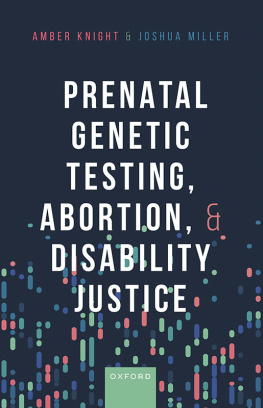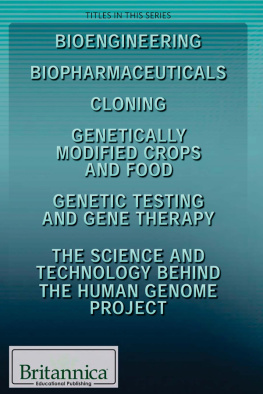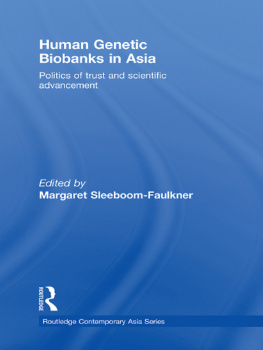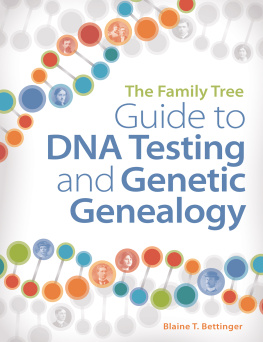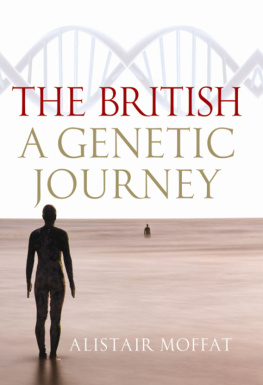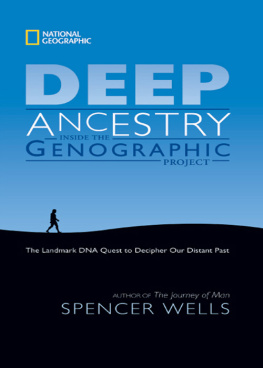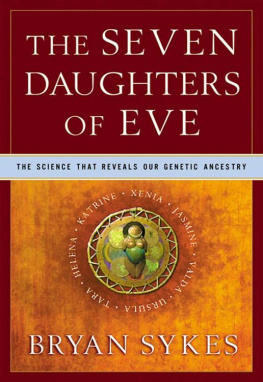Genetic Ancestry
Genetic Ancestry focuses on the scientific nature and limitations of genetic ancestry testing. Co-authored by a genetic anthropologist and a cultural anthropologist, it examines the social, historical, and cultural dimensions of how people interpret genetic ancestry data. Utilizing examples from popular culture around the world and case studies from the Caribbean, the chapters highlight how genetic technology can sometimes bolster racial thinking while also serving as a tool of resistance and social justice.
Jada Benn Torres is a genetic anthropologist, Associate Professor and Director of the Genetic Anthropology and Biocultural Studies Laboratory in the Department of Anthropology at Vanderbilt University, USA.
Gabriel A. Torres Coln is a cultural anthropologist, Assistant Professor in the Department of Anthropology and Assistant Director of the American Studies Program at Vanderbilt University, USA.
New Biological Anthropology
Series Editor: Agustn Fuentes, Princeton University, USA
Emergent Warfare in Our Evolutionary Past
Nam C. Kim and Marc Kissel
The Promise of Contemporary Primatology
Erin P. Riley
Genetic Ancestry
Our Stories, Our Pasts
Jada Benn Torres and Gabriel A. Torres Coln
For more information about this series, please visit: www.routledge.com/anthropology/series/NBA
Genetic Ancestry
Our Stories, Our Pasts
Jada Benn Torres and
Gabriel A. Torres Coln
First published 2021
by Routledge
2 Park Square, Milton Park, Abingdon, Oxon OX14 4RN
and by Routledge
52 Vanderbilt Avenue, New York, NY 10017
Routledge is an imprint of the Taylor & Francis Group, an informa business
2021 Jada Benn Torres and Gabriel A. Torres Coln
The right of Jada Benn Torres and Gabriel A. Torres Coln to be identified as authors of this work has been asserted by them in accordance with sections 77 and 78 of the Copyright, Designs and Patents Act 1988.
All rights reserved. No part of this book may be reprinted or reproduced or utilised in any form or by any electronic, mechanical, or other means, now known or hereafter invented, including photocopying and recording, or in any information storage or retrieval system, without permission in writing from the publishers.
Trademark notice: Product or corporate names may be trademarks or registered trademarks, and are used only for identification and explanation without intent to infringe.
British Library Cataloguing-in-Publication Data
A catalogue record for this book is available from the British Library
Library of Congress Cataloging-in-Publication Data
Names: Torres, Jada Benn, author. | Torres Coln, Gabriel A., author.
Title: Genetic ancestry : our stories, our pasts / Jada Benn Torres and Gabriel A. Torres Coln.
Description: Abingdon, Oxon ; New York, NY : Routledge, 2021. |
Series: New biological anthropology | Includes bibliographical references and index.
Identifiers: LCCN 2020020696 (print) | LCCN 2020020697 (ebook) | ISBN 9780367026240 (hardback) | ISBN 9780429398650 (ebook)
Subjects: LCSH: Physical anthropology. | Genetic genealogy.
Classification: LCC GN60 .T67 2021 (print) | LCC GN60 (ebook) | DDC 599.9dc23
LC record available at https://lccn.loc.gov/2020020696
LC ebook record available at https://lccn.loc.gov/2020020697
ISBN: 978-0-367-02624-0 (hbk)
ISBN: 978-0-429-39865-0 (ebk)
Typeset in Times New Roman
by codeMantra
We dedicate this book to those who have dared to dream about themselves in new and more powerful ways and to those on a quest to reimagine the past and work towards a better future.
The human experience continually presents circumstances wherein the biological and the social, the historical and the possible, the knowable and the yet-unimagined, are enmeshed, entangled, and dynamically interlaced. Genetic ancestry is certainly one of those instances.
Genetic ancestry as a concept is multimodal; as a methodology, it is often at the cutting edge of technoscience, and as a practice, it is intricately intertwined with race, racial experience, and racism. How one thinks about, defines, and uses it makes a difference in the social fabrics they weave. The academy, and the world beyond it, needs a thoughtful, accurate, and anthropological overview of how genetic ancestry is created, assessed, analyzed, and manipulated. This is that book.
In these pages, Jada Benn Torres and Gabriel A. Torres Coln demonstrate that genetic ancestry is a biocultural phenomenon that involves techno-methodology, scientific inquiry, and social creativity, and that varies cross-culturally. Setting the stage by immersion in culture, identity, and ancestry, and the details of analytic of the DNA testing itself, they confront the elephant in the room, race and racism, head on. Their attention focuses on the often hyper-racialized societies of the Americas, where genetic ancestry connects explicitly to how people think about and experience race. Benn Torres and Torres Coln invite us to reconceptualize race as embodied difference, forcing the reader to dive deep into the what, where, when, and why of human relatedness. They offer us a view of genetic ancestry that is more than a tool for making biological connections between people, living and dead, near and far. They dont de-biologize it; rather, they illustrate how it is a technology, and a biopolitic, that can be used to acknowledge and make sense of the stories that people create about themselves, their place in the world, and about others.
One reads this book and is wholly convinced that ancestry is a fundamentally social concept, and the science and technologies of genetic ancestry are only truly empirically and anthropologically sound when contextualized in the social, cultural, and experienced worlds and lives of those whose DNA is being sequenced. Engaging kinship, relatedness, and the questions of ancestry offers simultaneously simple and hyper-complex scenarios, and a myriad of correct answers. Benn Torres and Torres Coln interweave diverse strands of the biological and sociocultural anthropological literatures, showing why (and how) the answers to the questions who are your ancestors? are complex and never straightforward with the overlapping and shifting notions of the stories that people tell about themselves and their pasts.
This is not to say there is no biologically relevant information in genetic ancestry testing. There is a there there in the material (DNA) being measured. The results do produce biological information (data). However, ancestry testing is a methodological tool, not a magic bullet or crystal ball into the truth of who individuals are and where they come from. The data emerging from such tests must be analyzed, and that analysis can be framed, used, and structured in multiple ways. Genetic ancestry tests can ascertain information about ancestry based on biological notions of relatedness, but these are only one of many ways in which people relate to one another. And such information never exists in a vacuum. Comparing individuals sequences of DNA to reference populations tells us little by itself, but placed in dialogue with cultural, historical, and lived sources of information, it speaks volumes. To clarify why and how this is so, Benn Torres and Torres Coln integrate kinship; nationalism; embodied difference; and a myriad of notions of identity, self, and community with a deep discussion about the science and the modes of analyses involved in genetic ancestry. In doing so, they reveal that there is no one natural relationship between genetic ancestry data and how people interpret genetic information, but there are multiple genuinely experienced modes of such engagement.


